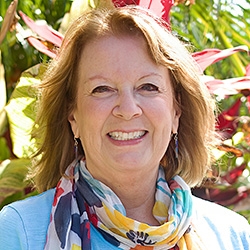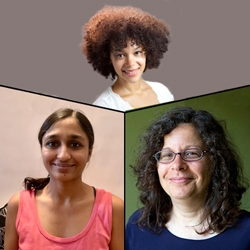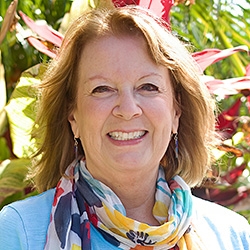
Search Results: liberation
-
- Connect the dots between NVC basic practices and the deeper "why" behind them
- Discover how NVC can support us in bringing tenderness to all of humanity
- Learn how to tie the NVC approach to liberation and vision
- Explore the many ways the tools of NVC support the path of liberation!
-
Whether we have more or less power and privilege, anything without liberation for all is within patriarchal separation, and will continue cycles of oppression. To liberate ourselves and one another we need to increase our collective capacity through developing related knowledge, skills, research; build an understanding of patriarchal roots; confront lovingly; co-hold dilemmas about privilege; co-shape outcomes; etc.
-
Giving feedback across a differences in culture, race, and power isn't something that we have to do -- but we can choose to do it for our own liberation, if we want. And if we choose that path, impact delivered well can invite caring for all needs and increase capacity to learn. This is the exacting, rigorous work of speaking about impact without attributing anything to the person whose actions resulted in the impact. Read on for part 1 of 2.
-
If we are to transform the existing social order, and shift to a mode of liberation for all, we'll need to look at our own participation in it. This includes how much we are able to focus on keeping our hearts open; speak to impact without attributing intention; and retain a humility that includes our systemic context. Read on for "how to" when we are in a position of less power.
-
-
Trainer tip: Read on for the three stages of emotional maturity. In the third stage, we integrate the first two stages. We come to realize that everyone is responsible for their own feelings, but we also recognize our role if we do something that stimulates pain in another person. We also start to value the needs of everyone, rather than just one party's needs over the other.
-
- Explore the complexities of how we can care for all of life using NVC
- See the role that power plays in relation to observations, feelings, needs, and requests
- Learn how to support people from many backgrounds in being able to apply NVC
- Discern how to engage with these vast topics as we learn and share NVC
-
Most people want to punish perpetrators of sexual violence. Unfortunately, punishment doesn’t lead to lasting widespread change. Rather, we can identify root causes and conditions that sustain violence. That means shifting from individual to systemic lenses, and from punitive to restorative responses. It means collective learning about how such acts are nurtured and persist. This can reduce the chance of it happening again.
-
The American mythos of Independence Day is that liberty, equality, and opportunity are for all. Yet since the country's formation, these needs have been for some at the expense of others. It started with the brutal robbery and genocide of Native Americans and slavery of Africans. And this theme continued for generations in various forms, including how we related to other peoples, countries, and the ecosphere. To achieve true justice, liberty, and opportunity for all we may need to overcome the ego's sense of separation. Compassionate noncooperation may also be key.
-
Trainer tip: When you tell yourself that you have to do something, you're more likely to disconnect yourself from the needs you’re trying to meet, and also diminish the joy in your life. Instead, experiment with translating your “shoulds” and “have tos” into the need you are trying to meet.
-
-
-
-
-
-
- Learn concrete tools for engaging with others as you embrace individual and collective liberation
- Find your own source of choice even in the face of challenges
- Release the constriction of scarcity
- Find an empowered option to respond to what is happening in our world
- Open the door to the possibility of thriving rather than merely surviving
-
Human health is connected to health of ecosystems and other societies. Our wellness and liberation is found in our interconnection, kinship, reverence for life, and solidarity. Solidarity erodes through narratives, practices and policies that separate us from each other -- and this impacts societal functioning. The breakdown creates conditions for pandemic, racism, police brutality, exploitation in untold numbers, and extinction. Read on for how all is connected.
-
When we have privilege, we can have access to resources resulting from legal or social norms related to membership in a group -- independent of any (in)action, awareness of the disparity, the potential benefits to us, or the costs to others. Unhelpful ways of engaging with privilege are: denial/invisibility, guilt/shame, defensiveness, and entitlement. Helpful ways of engaging are: owning privilege, learning about privilege, opening to feedback, and stewarding privilege for benefit of all. To be helpful we need to engage with necessary (rather than unnecessary) discomfort.
-
In the "obnoxious stage" we care for our needs in a way that doesn't respect others' needs. In the "emotional liberation" stage we fully care for others' needs as much as our own—while being free of fear, guilt, shame, or obligation. Often NVC training teaches us how to achieve the latter stage without the former. For greater compassion we can be more rigorous in how we talk about “responsibility", impacts and interdependence.
-
- Learn how to transform NVC into a tool for systemic awareness and healing
- Examine the influence of difference, and uncover pathways that strengthen its capacity
- Learn to receive and offer feedback on impact in situations fraught with power differences
- Explore specific ways in which NVC systemically supports the full flowering of humanity
- Delve into the dynamics of cultural differences, and discover how NVC can systemically contribute to a liberation perspective













